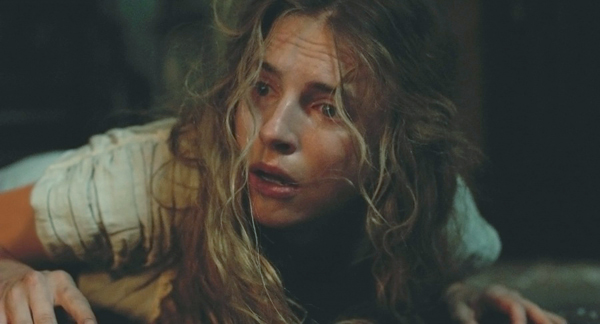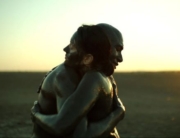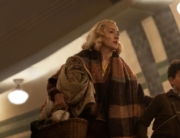“Why do you come like you want a war?” protagonist Augusta (indie-darling Brit Marling) asks her Union soldier attacker. He states that, after all the fighting he has done, it is impossible to stop.
Set during the last days of the Civil War, The Keeping Room presents a distinctly revisionist Western, taking a feminist approach to the genre. The film focuses on three Southern women, two sisters and their slave turned partner. Together they face the effects of war as they try to survive without the help of men. These women aren’t the typical female characters waiting for the hero to return to their aid; rather, they take up arms and fight back. The men take a back seat, while the women get a chance to prove they are more than background fodder.
Augusta takes care of her family’s farm. Aided by her moody younger sister, Louise (Western veteran Hailee Steinfeld of 2010’s True Grit), and their slave, Mad (Muna Otaru), she fights to put food on the table and protect her charges against the outside world with its many dangers, including Moses and Henry (Sam Worthington and Kyle Soller), two rogue Union soldiers. Preying on women and down-on-their-luck Southerners, the two destructively make their way toward Augusta’s farm. She runs into them at a local saloon, and they follow her back to the farm. After she shoots their dog on her property one night, the soldiers attack the house. The film builds suspense as the three women try to protect their home to shocking results.
The relationship between the women is what holds the film together. Augusta’s drive to protect Louise and Mad is the main struggle, though the other two hold their own. Louise is still not adjusted to toil and hardship. She wants to wear hoop skirts and for her father and brother to come back and take of her. Underneath her bratty behavior, though, is a strong will. The sisters also labor to treat Mad as their equal now that they all must work the land and take care of the home together. As Mad, newcomer Otaru gives a great performance. While the sisters are unfamiliar with this harsh treatment, Mad has had to deal with it all her life. Otaru does a wonderful job of balancing Mad’s weariness and optimism.
Julia Hart’s script appeared on the 2012 Black List of best unproduced screenplays, and it is easy to see why. The story’s perspective is so compelling. The film keeps its Western roots while focusing on issues of female friendship, sexual assault, and motherhood. It supposes a world where men are the enemy and the war is fought on the home front. There are no cowboy anti-heroes here, but rather those who so often get left behind in such films.
Director Daniel Barber fills the screen with dusty Earth tones and stark landscapes. The look is stunning, particularly the bittersweet final shot, capturing the final days of the Civil War.

















Leave A Comment